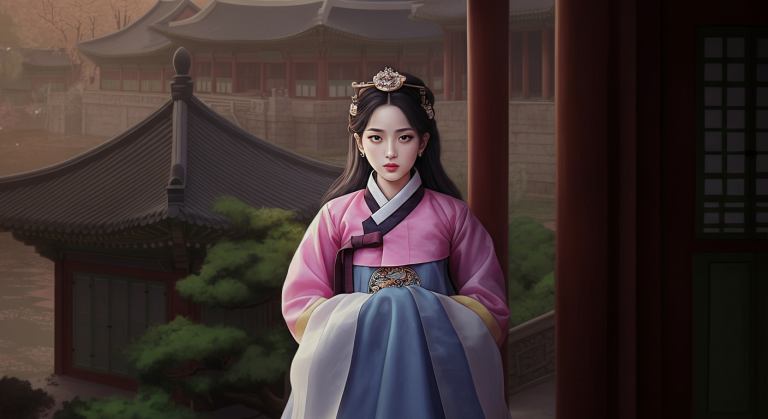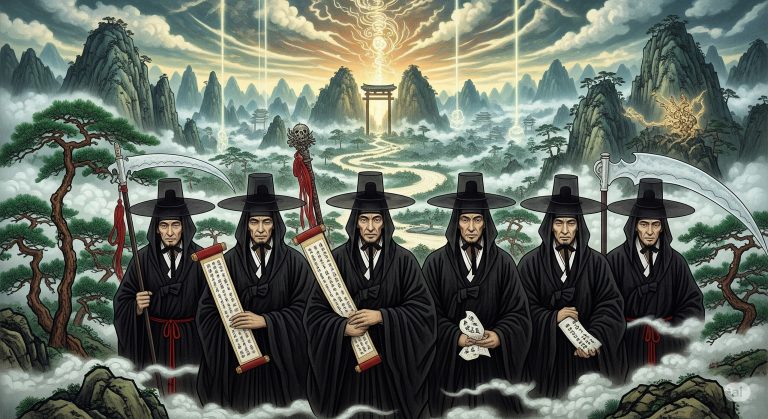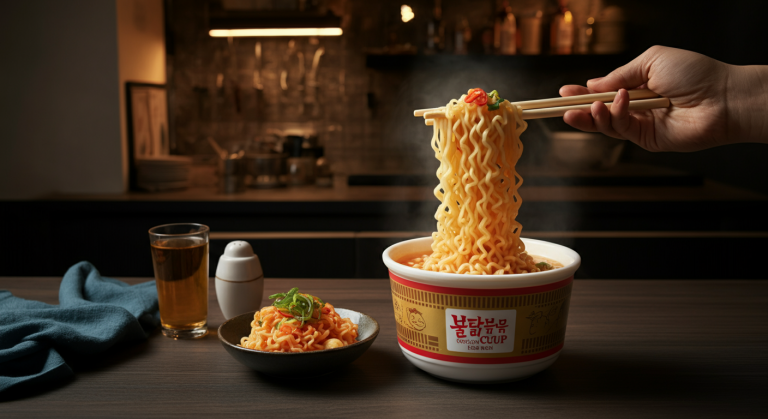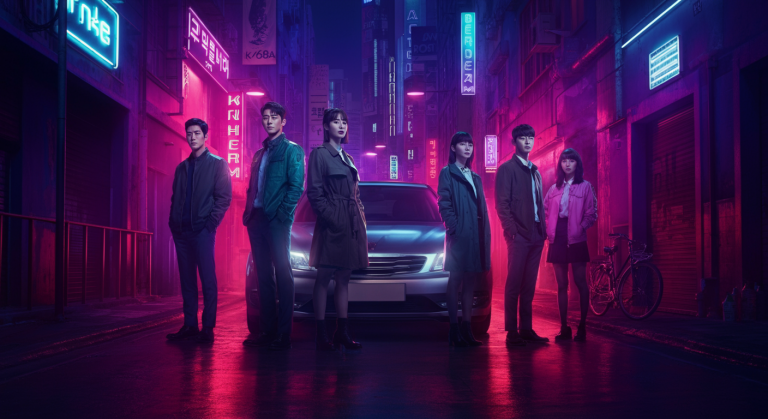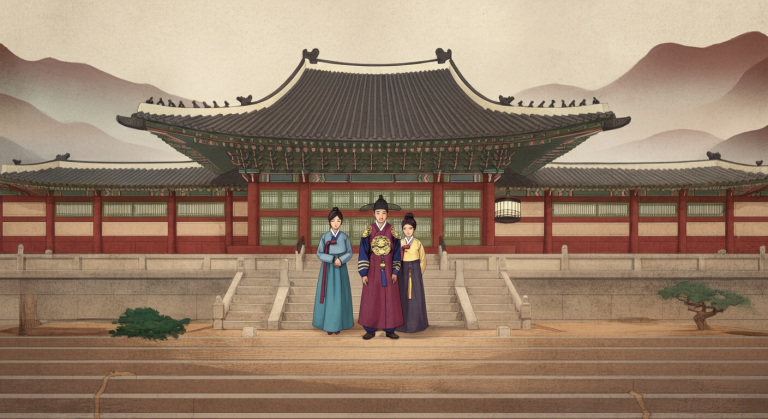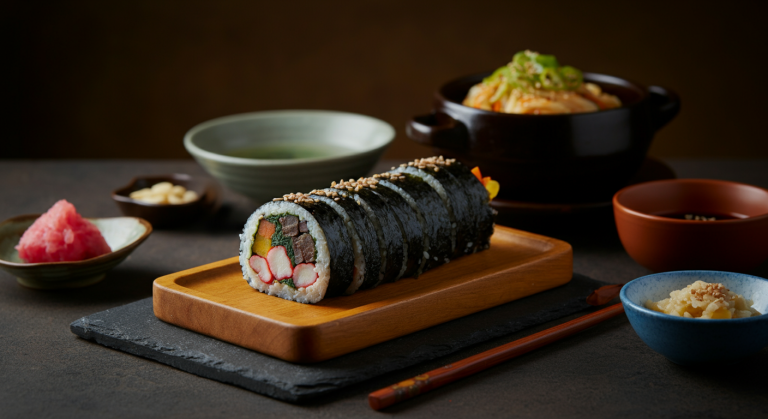Dear Mom, I Can’t Come to Dinner Because Baek Sa-eon Just [SPOILER] and I Need 3-5 Business Days to Recover
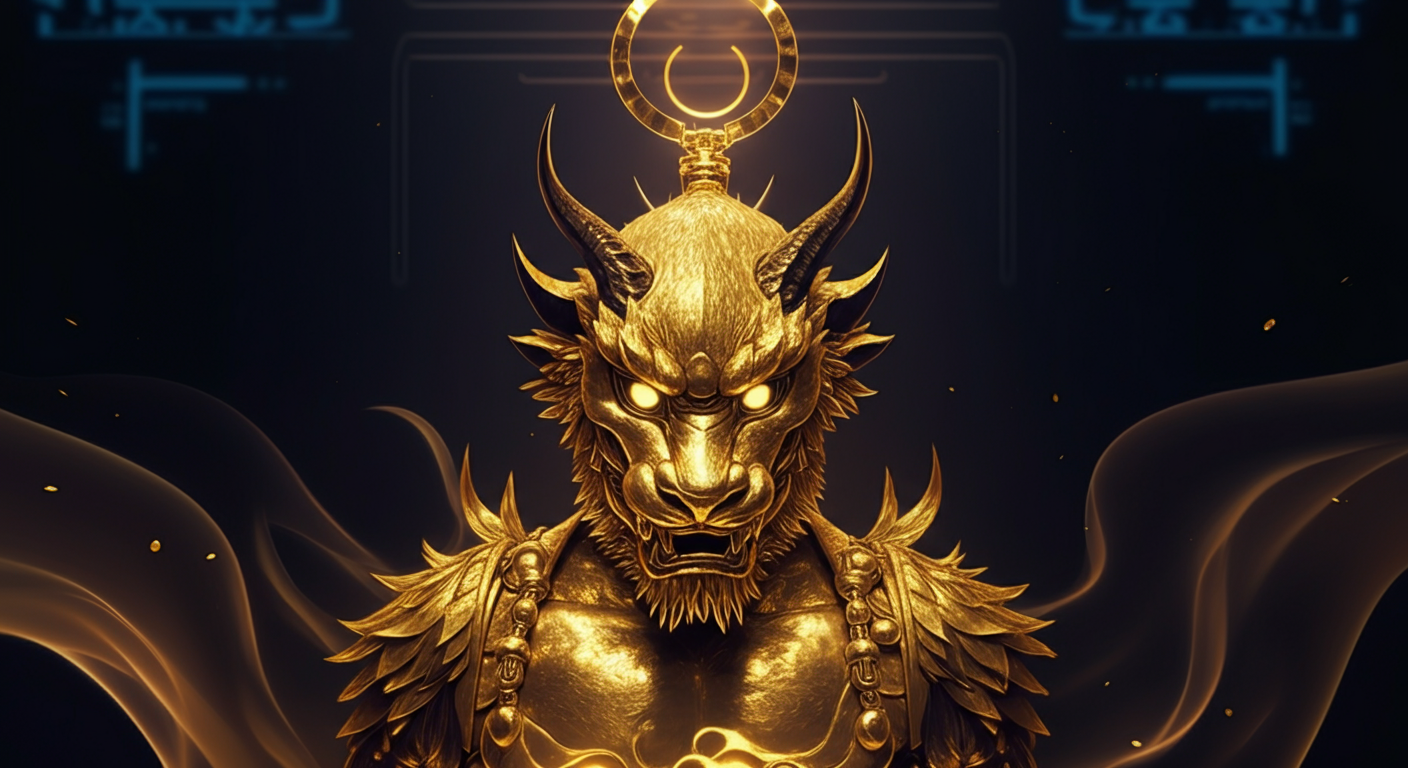
If you’re wondering why I’ve been emotionally unavailable lately, why my reply times have plummeted, and why my Spotify Wrapped was a chaotic blend of epic orchestral scores and heart-thumping K-pop tracks, it’s all thanks to one phenomenal obsession: K-pop Demon Hunters and Golden (케데헌 그리고 골든). Trust me, I know what you’re thinking. “Another K-drama?” But this isn’t just *another* K-drama; it’s a genre-bending, culture-weaving, soul-capturing phenomenon that has completely hijacked my brain and, frankly, my entire cultural sensibility. As someone who lives and breathes K-culture, from its ancient traditions to the latest K-pop comeback, I thought I was immune to this level of intense immersion. Boy, was I wrong.
Growing up in Korea, stories of spirits, mythical creatures, and heroes fighting against supernatural forces were as common as a bowl of kimchi stew (김치찌개) on a cold day. These tales weren’t just for entertainment; they often carried deep moral lessons, reflecting our collective fears, hopes, and the enduring human spirit. But ‘K-pop Demon Hunters and Golden’ takes these familiar narratives and blasts them into the 21st century with a vibrant, electrifying twist. Imagine the raw energy and dazzling visuals of K-pop, then infuse it with the dark, thrilling world of demon hunting, all set against a backdrop of a beautifully crafted supernatural realm. That’s what we’re dealing with here, and it’s a recipe for absolute cultural *대박* (daebak – huge success/jackpot).
For my international K-drama and K-pop loving friends, you might have seen snippets, heard whispers, or perhaps your social media feed has been flooded with stunning visuals and theories. But for those still on the fence, or perhaps wondering why I’ve suddenly become a recluse, let this be my diary entry, my public confession, and your warning. This drama is not just a watch; it’s an experience, a journey into the heart of modern Korean storytelling that leaves you utterly captivated. The original soundtrack, affectionately known as “Golden” (골든), isn’t merely background music; it’s a character in itself, dictating the very rhythm of your emotional landscape. It’s the kind of music that gives you *심쿵* (simkung – heart throb) moments, even when you’re just doing laundry.
This ‘K-culture Deep Dive’ will unravel the layers of K-pop Demon Hunters and Golden, explaining why it’s more than just a captivating show. We’ll explore the unique blend of K-pop aesthetics with traditional Korean folklore, delve into the incredible power of its soundtrack, and, yes, I’ll even provide a “stages of 케데헌 obsession” guide and a “Signs You’re Too Deep” section for self-diagnosis. Prepare yourselves, because this drama is not just changing my life; it’s revolutionizing the K-drama landscape as we know it.
K-pop Demon Hunters and Golden: My Personal Descent into Fandom
My journey into the world of ‘K-pop Demon Hunters and Golden’ (케데헌) began with an all-too-familiar K-drama skepticism. “Oh, a show with idols? Probably more about visuals than plot,” I remember thinking, scrolling past the promotional posters. My friends, however, had other ideas. They kept giving me that subtle *눈치* (nunchi – social awareness/the art of gauging others’ feelings) look, hinting that I was missing out on something extraordinary. They’d casually drop lines like, “Did you see *that* scene?” or “The choreography is insane, even in battle!” And, you know, as someone who lives for compelling narratives and cultural depth, ignoring such persistent nudges felt almost rude.
Eventually, the curiosity became too much. I told myself, “Just one episode. I’ll just see what the fuss is about.” This is where the denial phase truly begins for any K-drama addict. One episode quickly turned into two, then three, and before I knew it, I was deep into a binge-watching session fueled by instant coffee and a burning need to know what happens next. The show cleverly weaves ancient Korean mythical creatures – from *도깨비* (dokkaebi – goblins) to *구미호* (gumiho – nine-tailed foxes) – into a sleek, modern setting. This blend instantly resonated with me. Growing up, these creatures were figures of both fear and fascination in folklore, often appearing in cautionary tales or heroic legends. To see them reimagined with such contemporary flair and, frankly, *fierce* K-pop energy, was something truly special. The storyline hooks you with its unique premise and keeps you glued with its intricate plot twists, compelling character development, and breathtaking visuals. It’s an absolute masterpiece in cultural synthesis.
The Unavoidable Pull: From Skepticism to Obsession
Like many K-culture enthusiasts, I have a long list of K-dramas I’ve adored, from historical epics to romantic comedies. I thought I had seen it all, and developed a keen sense for predicting tropes. Yet, ‘K-pop Demon Hunters and Golden’ (케데헌) managed to surprise me at every turn. The lead characters, initially presented as a seemingly mismatched group of K-pop idols, quickly evolve into a tight-knit demon-hunting squad, embodying the concept of “found family” that K-dramas often excel at. Their journey together, overcoming challenges and forming unbreakable bonds, taps into that universal desire for belonging.
The action sequences are nothing short of spectacular, blending martial arts with what can only be described as “idol power-ups.” Imagine the synchronized precision of K-pop choreography applied to combat – it’s both aesthetically stunning and surprisingly effective. This innovative approach to action is a refreshing change, injecting a familiar genre with fresh vitality. For anyone who appreciates the meticulous planning behind K-pop performances, seeing that same dedication translated into fantasy battles is a true treat. It’s an experience that blurs the lines between performance art and action storytelling, making it utterly captivating.
The Stages of 케데헌 Obsession: A Diagnostic Guide
If you’re wondering if you’re falling down the same rabbit hole I did with ‘K-pop Demon Hunters and Golden’ (케데헌), here’s a handy diagnostic guide to the stages of obsession. You might find yourself nodding along!
- Stage 1: Denial
- “It’s just another K-drama.”
- “I’ll watch it eventually, maybe when I have nothing else.”
- “K-pop idols fighting demons? *아니* (ani – no way), that sounds a bit much.”
- Self-talk: “I have *so much* to do. I cannot afford another obsession.”
- Stage 2: Curiosity
- “Okay, fine, I’ll watch the trailer. Just to see.”
- “Wait, the visuals are actually stunning. And that OST… *헐* (heol – gasp/wow).”
- “Maybe one episode won’t hurt. Everyone’s talking about it.”
- Behavior: You find yourself subtly looking up character names and fan theories. Your *치킨과맥주* (chikin-gwa-maekju – chicken and beer) nights suddenly become a K-pop Demon Hunters viewing party.
- Stage 3: Full Breakdown
- You’ve rewatched key scenes multiple times.
- You know the character backstories better than your own family tree.
- The ‘Golden’ (골든) OST is permanently on loop in your head and on your Spotify.
- You find yourself spontaneously performing “demon-hunting” moves in your living room.
- Emotional State:Utterly consumed. You cannot think, speak, or dream about anything else. Your emotional availability? Non-existent. You’re living and breathing the world of ‘K-pop Demon Hunters and Golden’.
Golden (골든) and the Sonic Takeover of My Life
Let’s talk about the soundtrack. Oh, the glorious, all-encompassing soundtrack. The moment K-pop Demon Hunters and Golden began, I was already captivated by the visuals and the premise. But then the music hit. It wasn’t just background noise; it was a character in its own right, a driving force that elevates every scene, every emotional beat, and every epic battle. “Golden” (골든), as the original soundtrack is aptly named, isn’t just a collection of songs; it’s a meticulously crafted auditory journey that perfectly complements the drama’s fantastical world. It’s safe to say that my recent Spotify Wrapped was less about my personal music taste and more a testament to how completely this drama’s OST had taken over. My top artists? Surprisingly, not my usual K-pop groups, but the various artists who contributed to “Golden.”
Korean drama original soundtracks have always been powerful. They’re not just commercial additions; they are integral to the storytelling, capable of evoking strong emotions and deepening the audience’s connection to the narrative. From melancholic ballads that underscore tragic love stories to uplifting anthems that celebrate triumph, K-drama OSTs are masters of emotional manipulation in the best possible way. ‘K-pop Demon Hunters and Golden’ takes this to another level by blending traditional Korean instruments like the resounding *징* (jing – a large gong) and the piercing *꽹과리* (kkaenggwari – a small gong) with modern electronic beats and the powerhouse vocals of K-pop idols. This creates a soundscape that is both ancient and futuristic, perfectly mirroring the drama’s own fusion aesthetic. For more on the fascinating history and impact of K-drama OSTs, you can explore this Wikipedia article on K-drama original soundtracks.
When an OST Becomes Your Entire Personality
There’s a unique phenomenon that happens when a drama’s soundtrack is *that* good: it becomes an extension of your own identity. The “Golden” (골든) OST isn’t just something you listen to; it’s something you *feel*. When a heroic theme swells, you feel the surge of *흥* (heung – joyful excitement or zest for life) in your chest. When a somber melody plays, you feel the weight of the characters’ struggles. The music doesn’t just play *during* the scenes; it dictates their emotional temperature, pulling you deeper into the narrative vortex of ‘K-pop Demon Hunters and Golden’.
I often find myself humming the main theme while doing mundane tasks, or suddenly getting goosebumps when a particular track unexpectedly shuffles on my playlist. It’s an auditory reminder of the thrilling adventures and profound character moments from the show. The brilliance of “Golden” lies in its ability to encapsulate the drama’s essence in every note. It’s meticulously produced, with each song perfectly placed to enhance the storytelling, proving once again that a great OST is irreplaceable. If you’re a fellow OST enthusiast, you might enjoy my previous thoughts on Golden: My K-Drama OST Roman Empire, because honestly, I could talk about this all day.
The Power of Sound: Bridging Worlds in K-pop Demon Hunters and Golden
The “Golden” soundtrack doesn’t just accompany the story; it actively builds the world of ‘K-pop Demon Hunters and Golden’. The use of traditional Korean musical elements (국악 – gugak) mixed with contemporary sounds is not just a stylistic choice; it’s a narrative one. It grounds the supernatural fantasy in a distinctly Korean cultural identity, reminding viewers that these demons and spirits are deeply rooted in our own folklore, even as they are fought by idols with modern powers. This sonic fusion creates an authentic yet fresh experience, showcasing the versatility of Korean artistic expression.
Imagine a scene where a powerful demon is about to strike, and suddenly the urgent beat of a *북* (buk – barrel drum) kicks in, combined with an intense electronic bass drop. This isn’t just exciting; it’s culturally resonant. The music highlights the inherent “idol power” of the K-pop stars in the show, not just through their physical abilities, but through the musicality of their very existence within the narrative. Their unique blend of singing, dancing, and acting brings a fresh dimension to what it means to be a “hero” in a K-drama, proving that talent knows no bounds and can transcend traditional genre definitions.
Signs You’re Too Deep in K-pop Demon Hunters and Golden: A Reality Check
Alright, it’s time for a little self-reflection. If you’ve reached Stage 3 of the ‘K-pop Demon Hunters and Golden’ (케데헌) obsession, you might be exhibiting some of these tell-tale signs. Don’t worry, you’re not alone! Many of us, myself included, have fallen completely head over heels for this drama, blurring the lines between reality and the thrilling world of idol demon hunters. It’s a testament to the show’s incredible writing and immersive world-building that it can provoke such strong reactions.
One of the first signs you’re truly deep into ‘K-pop Demon Hunters and Golden’ is when your everyday life starts feeling a little… *underwhelming*. You begin to wonder if that flickering streetlamp is actually a mischievous *도깨비* (dokkaebi), or if your sudden urge for ramen is a subtle craving planted by a food-loving spirit. You might find yourself instinctively looking for hidden talismans or checking shadows for lurking threats. It’s not just watching the show anymore; it’s living within its lore, seeing the world through the drama’s unique lens. This isn’t a bad thing, necessarily, but it definitely means you’re past the casual viewer stage. You’ve become a *찐팬* (jjin-paen – true fan).
The Unmistakable Symptoms of Fandom Overload
Here are some undeniable indicators that you’re thoroughly enmeshed in the world of ‘K-pop Demon Hunters and Golden’:
- You’ve adopted specific hand gestures or catchphrases from the drama into your daily vocabulary.
- Your phone background, laptop wallpaper, and maybe even your coffee mug all feature characters from the show.
- You spend hours theorizing about plot twists, character arcs, and potential spin-offs with fellow fans online.
- You automatically connect any K-pop song you hear back to the ‘Golden’ OST, even if they sound nothing alike.
- You find yourself explaining the intricate lore of ‘K-pop Demon Hunters and Golden’ to confused friends, family, or even strangers. Your passion is infectious, even if the recipient doesn’t quite grasp why K-pop idols are battling ancient evils.
- You feel a genuine sense of camaraderie with other viewers, united by the shared experience of this epic saga. You’ve probably mumbled, “Oh, *망했어* (manghaesseo – I’m doomed/screwed),” after a particularly shocking cliffhanger.
Beyond the Screen: Cultural Resonance and Fandom
What makes ‘K-pop Demon Hunters and Golden’ (케데헌) so captivating, beyond its surface-level excitement, is its ability to tap into deeper Korean cultural concepts. The drama often explores themes of collective responsibility and sacrifice, echoing the deeply ingrained values of community and perseverance. Characters frequently demonstrate *정* (jeong – a profound, often unspoken, sense of affection, connection, and loyalty) towards each other, even when facing impossible odds. This concept of *정* is a cornerstone of Korean relationships and adds a powerful emotional layer to the demon hunters’ camaraderie. They aren’t just fighting monsters; they’re fighting for each other, for their shared humanity, and for the people they protect.
Furthermore, the show subtly touches upon elements of *한* (han – a deep-seated, collective sorrow or grievance, often combined with resilience and hope for justice), especially in the backstories of certain characters or the motivations of the demons they face. This nuanced integration of profound cultural sentiments elevates the drama beyond mere entertainment, turning it into a reflection of the Korean spirit itself. You can learn more about these powerful concepts in this Korea Times article on Jeong and Han, which I highly recommend. It’s this blend of thrilling action, relatable character dynamics, and deep cultural roots that makes the global fandom for ‘K-pop Demon Hunters and Golden’ so vibrant and passionate.
The Future Landscape: K-pop Demon Hunters and Golden’s Revolutionary Impact
When a drama like ‘K-pop Demon Hunters and Golden’ (케데헌) comes along, it doesn’t just entertain; it reshapes the entire landscape of K-dramas. This series is not merely following trends; it’s setting new ones, pushing the boundaries of what a K-drama can be and how it can connect with a global audience. Its daring fusion of K-pop, traditional folklore, high-stakes action, and supernatural elements signals a bold new direction for Korean television, one that other productions are sure to emulate. The success of ‘K-pop Demon Hunters and Golden’ demonstrates a hunger for innovative storytelling that isn’t afraid to blend genres and break conventional molds.
The drama serves as a powerful testament to the versatility of K-pop idols, showcasing their ability to transcend the stage and deliver compelling performances on screen. This isn’t just about pretty faces; it’s about raw talent and dedication. The idol-actors in ‘K-pop Demon Hunters and Golden’ bring a unique energy and authenticity to their roles, leveraging their performance backgrounds to create dynamic and charismatic characters. This phenomenon will undoubtedly open more doors for idols, encouraging a new wave of multi-talented entertainers who can captivate audiences across various artistic mediums. It’s a win-win for both K-pop and K-drama fans! It truly exemplifies the spirit of *화이팅* (hwaiting – fighting! / you can do it!) for new challenges.
Redefining K-drama Genres and Global Appeal
‘K-pop Demon Hunters and Golden’ (케데헌) is more than just a successful show; it’s a blueprint for future genre-bending K-dramas. It proves that combining seemingly disparate elements – idol culture, ancient myths, and modern action – can create a harmonious and incredibly engaging narrative. This dramatic fluidity is appealing to international viewers who are increasingly looking for fresh, unexpected stories beyond traditional romance or family sagas. The show’s global appeal is undeniable, drawing in audiences who might initially come for the K-pop stars but stay for the captivating plot and rich cultural tapestry.
This drama’s success will undoubtedly inspire more experimental productions, encouraging creators to explore unconventional themes and integrate different forms of Korean entertainment. We might see a surge in K-dramas that incorporate gaming elements, webtoon aesthetics, or even contemporary dance into their storytelling. The creative *케미* (chemi – chemistry/synergy) between its elements is undeniable. It also highlights the growing sophistication of K-drama storytelling, which is consistently evolving to meet and exceed global expectations. For those interested in how K-dramas continue to captivate audiences worldwide, consider checking out other K-VIBE discussions like K-Drama: Fake Marriage, Real Obsession.
More Than Just a Drama: A Cultural Phenomenon
Ultimately, ‘K-pop Demon Hunters and Golden’ (케데헌) is poised to leave a lasting legacy. It’s not just a passing trend; it’s a cultural phenomenon that bridges the gap between traditional Korean heritage and its cutting-edge contemporary culture. This drama acts as a fantastic gateway for international viewers to delve deeper into Korean folklore, understand nuanced cultural concepts, and appreciate the incredible artistic talent that thrives in Korea today. Its global reach helps to introduce a broader understanding of Korea, showcasing its rich history and dynamic present.
We can expect ‘K-pop Demon Hunters and Golden’ to spark an explosion of related content, from webtoons and animated series to merchandise and even fan-created experiences. It has proven that unique, well-produced content with a strong cultural identity can resonate universally. This kind of international cultural exchange is incredibly valuable, fostering greater understanding and appreciation for diverse narratives. *그러게요* (geureogeyo – exactly / I know right?), what’s not to love? To dive even further into the beauty of Korean culture, I always recommend exploring the official Visit Korea website, which offers a treasure trove of information.
Conclusion: Embracing the K-pop Demon Hunter Within
So, there you have it. My diary entry, my confession, and my heartfelt plea for you to experience the phenomenon that is ‘K-pop Demon Hunters and Golden (케데헌 그리고 골든)’. I’ve gone from a skeptical observer to a fully committed *찐팬* (jjin-paen), utterly captivated by its ingenious blend of K-pop, ancient Korean lore, and compelling storytelling. This drama has not only taken over my Spotify Wrapped with its incredible “Golden” (골든) OST but has also deeply enriched my appreciation for the innovative directions K-culture is taking. It’s a testament to the fact that when creativity, cultural depth, and pure entertainment collide, the results are nothing short of magical.
This drama is more than just a fleeting obsession; it’s a masterclass in how to bridge traditional narratives with modern aesthetics, making Korean culture accessible and utterly irresistible to a global audience. It reminds us why we fell in love with K-dramas and K-pop in the first place: for their ability to tell deeply human stories with unparalleled style and heart. So, if you’re ready to experience a truly revolutionary piece of K-culture, if you’re prepared to lose a little bit of your emotional availability, and if you’re eager to embrace the thrill of demon hunting with a K-pop beat, then K-pop Demon Hunters and Golden is calling your name. Don’t be like me in Stage 1; dive in! You won’t regret it. And to the creators and cast: *수고했어요* (sugohaesseoyo – well done, you worked hard)! Now, who’s ready to watch it with me? *같이 봐요* (gati bwayo – let’s watch together)!
